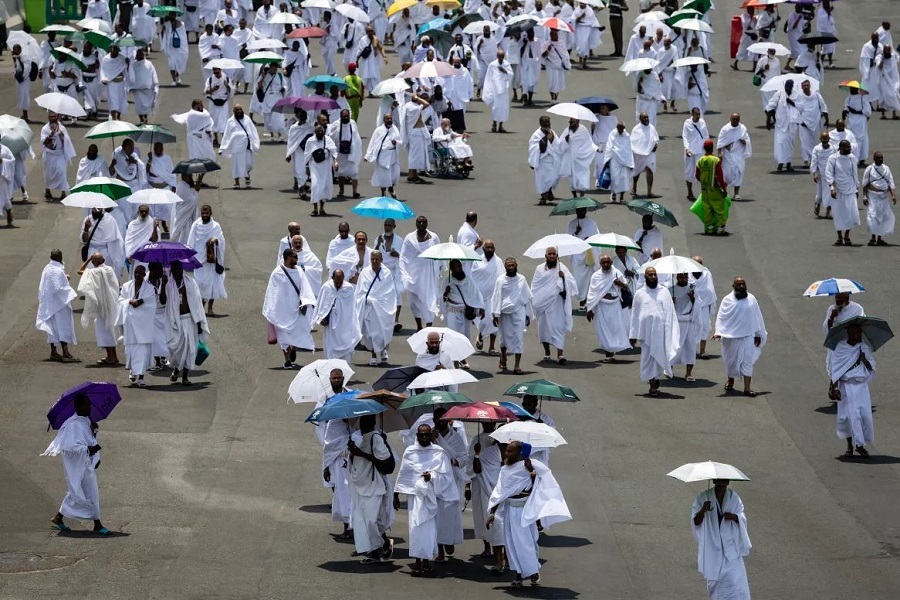Heatwave Claims Lives of Over 550 Pilgrims During Hajj: Report

This is according to two Arab diplomats who released the figure to AFP on Tuesday.
They said a significant number of the deceased are Egyptians, with heat-related illnesses being the predominant cause of death.
Tthe majority of the Egyptian casualties succumbed to the heat, with one exception who died from injuries in a minor crowd incident, they said. The diplomats revealed that the figures were compiled from the Al-Muaisem neighborhood's hospital morgue in Mecca.
The death toll for Jordanian nationals has also risen, with at least 60 confirmed fatalities, exceeding the initial count of 41 reported by Amman earlier on Tuesday. The updated death count from various countries now stands at 577, as per AFP's tally.
The annual Hajj pilgrimage, a central tenet of Islam, has been increasingly impacted by climate change. A recent Saudi study highlighted a temperature increase of 0.4 degrees Celsius (0.72 degrees Fahrenheit) per decade in the ritual areas.
Read More:
The Grand Mosque in Mecca recorded a staggering 51.8 degrees Celsius (125 Fahrenheit) on Monday, as stated by the Saudi national meteorology center.
Meanwhile, Egypt's foreign ministry announced collaboration with Saudi officials to locate missing Egyptians during the Hajj. While acknowledging some fatalities, the ministry did not confirm if Egyptians were among the deceased.
Saudi health services have treated over 2,000 pilgrims for heat stress, but updates on this figure and related fatalities have not been forthcoming since Sunday.
Last year, at least 240 pilgrims were reported dead, with Indonesians constituting the majority.
Saudi authorities had recommended precautionary measures like using umbrellas, staying hydrated, and limiting sun exposure during peak hours. However, some Hajj rituals require outdoor presence, particularly the prayers on Mount Arafat, which was held on Saturday.
Read More:
Witness accounts described seeing lifeless individuals along roadsides and instances of overwhelmed ambulance services.
This year's Hajj saw the participation of approximately 1.8 million pilgrims, with 1.6 million arriving from overseas.
The plight of unregistered pilgrims, who often bypass official channels due to the prohibitive costs of Hajj visas, was highlighted by the diplomats. These individuals lack access to the air-conditioned amenities provided by Saudi authorities, placing them at greater risk.
An Egyptian official in charge of the Hajj mission cited the influx of unregistered pilgrims as a significant factor in the disruption of services and the subsequent fatalities due to heat exposure.
Source: Agencies



